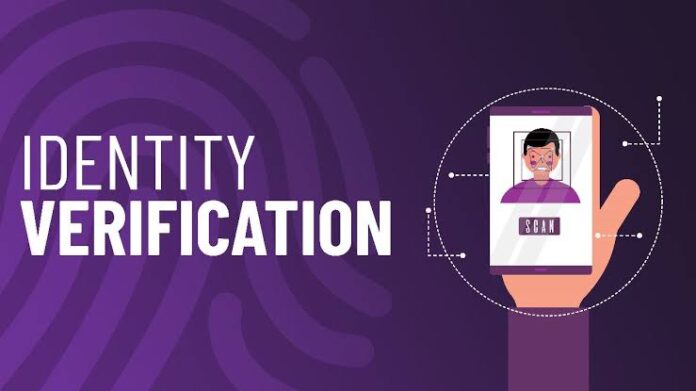The modern world of complex transactions uses online payment methods to make the process easy using digital platforms. These online platforms are crucial for digital operations as the growing number of crimes has concerned every individual regarding trading, transacting, or any other business purchasing. Most cases reported are identity theft or money laundering using virtual currencies or account takeovers.
Like every other region that encounters such events, the UAE has faced the complexities of technology progression and its impact on the virtual business. However, several industries in the state have implemented robust identity verification solutions to combat financial and impersonation fraud. For further information, go through the article and explore the validation of identity in the UAE.
Identity Verification Services in UAE – Enable Security
The UAE’s digital era and evolving landscape require identity verification as their primary tool to validate the entity’s identity. Online businesses and digital identity verification combine to provide a secure consumer ecosystem. It helps organizations validate the authenticity of customers and shield sensitive data with the help of biometric identity verification and document authentication. The process includes:
- KYC methods
- AML screening
- Risk-based authentication
- Enhanced due diligence
- Constant monitoring
In simpler words, ID verification is referred to as a security measure employed in the UAE financial system to ensure that no illegal activity can be executed, impacting businesses with significant losses.
Understand the Concept of Online Global ID Verification
Identity verification is usually executed through document and liveness test inspection and detection. The AML and CTF policies make a difference in the verification system. Every region designs its own KYC programs for the whole authentication process. In the UAE, the industries follow the guidelines approved by the governing authorities. These guidelines include strict adherence to AML, KYC, and CTF laws and regulations to ensure robust security. Moreover, IDv services prevent fraud and improve business operations through customer verification procedures.
Digital Identity Verification – Standard Methods Implemented in UAE
UAE has been implementing KYC identity verification methods according to global standards, including various methodologies to validate the consumer’s identity. These methods are AI-powered with pre-trained models that analyze and perform identification methods on the information collected and stored. Let’s explore the top standard employed by the business world globally:
- Document verification
- Two-factor authentication methods
- Biometric validation
- Risk-based assessment
- Liveness detection
- Sanction list screening
These methods assess and authenticate the legitimacy of identities while implementing constant monitoring and storing the record properly.
Explore the Significance of ID Verification in Compliance with UAE Regulations
UAE rules and regulations mainly focus on AML and KYC compliance, and companies confirming these laws are protected from heavy charges. UAE’s technical regulations follow the guidelines mandated by the following regulatory bodies:
- UAE Central Banks
- Dubai Financial Service Authority(DFSA)
- Dubai International Financial Centre(DIFC)
- Financial Service Regulatory Authority(FSRA)
These regulatory bodies ensure that proper ID proofing checks and liveness inspection and detection is incorporated to combat financial and other identity theft crimes with the support of digital solutions.
Digital Identity Verification Best Practices in UAE
Critical practices of identity verification in the UAE are as follows:
-
Digital Verification Solutions
UAE has now replaced conventional methods with automated solutions and reshaped the structure of businesses with digital verification of identities by eliminating the need for manual checks and extra resources. This approach empowers companies to boost their operational efficiencies while streamlining the process for end-users
-
Credential Security
One primary goal of an authentication system is to protect the data and information submitted by the user. However, the automated tools collect and store the credentials safely in the back office, ensuring no unauthorized access can reach the details. It also eliminates the risk of data breaches while building strong consumer trust.
-
Confirmation with Regulatory Compliance
According to UAE’s policies and guidelines, companies must implement solutions that adhere to AML, KYC, and CTF laws. Choosing verification solutions that comply with the rules assists the organization in protecting its reputation and avoiding heavy fines and non-compliance penalties.
-
Customizable Structures
The easy-to-integrate verification systems are customizable and can get tailored structures according to the nature of the business. The end-user efficiently operates the user-friendly interface. Moreover, automated systems can effortlessly be incorporated into existing systems aligned with business activities.
How to Choose the Appropriate ID Verification Service Provider?
To select the proper and appropriate identity service provider, businesses should look for these criteria:
- Cost Comparison
- Market knowledge
- Security features
- Policies and compliance expertise
- Customer satisfaction rate
- Scalability ratio
Final Thoughts
Identity verification is an essential aspect for every state, including the UAE. As every region has its own set of rules, the UAE governing bodies also have their guidelines that are important for businesses to follow. Complying with these rules and laws, the verification systems can protect firms against all financial and monetary crimes while safeguarding the company’s reputation.
